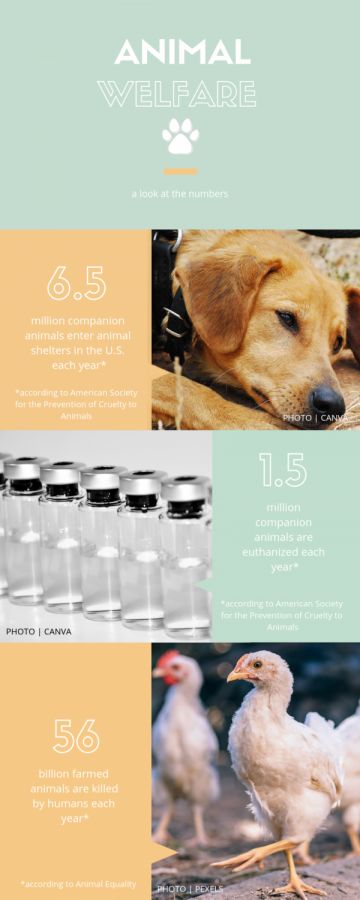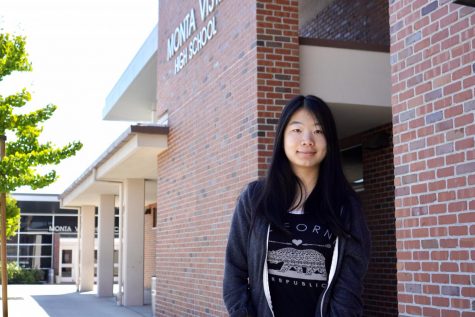The beginning of Animal Protection Society
APS’s inspiration and plans for the future
March 10, 2019
Every time sophomore Pragya Kallanagoudar opened the front door, the cat was there.
It was a gray and white tabby, almost a kitten. There were plenty of stray cats around Kallanagoudar’s house, often sleeping on the patio or backyard, huddling on the blankets she laid out during the winter months. Most of the cats came and went, traveling from place to place, and sometimes she never saw them again.
But this one was different.
It came regularly, and Kallanagoudar fed it three meals a day. Eventually, it initiated physical contact, allowing her to pet it, the only one of the strays that trusted her enough to do so. She grew close to it, fondly naming it “Cat,” and although she had to move away, she still misses it.
“It really kind of warmed my heart to see them, even if it’s just one time, getting something to eat, because they’re starving and really thin,” Kallanagoudar said. “That sort of had a huge emotional impact on me.”
This semester, Kallanagoudar decided to start the Animal Protection Society (APS). She had always been interested in community service, but felt that the volunteering she did in the past wasn’t making a real impact on the world. Instead, wanted to begin a club of her own regarding something she was passionate about.
“I’ve never really started anything like this before and [had] a team under me and a bunch of events going on,” Kallangoudar said. “[It’s] super, super exciting because I’ve always sort of wanted to be part of the organization of things instead of just participating.”
Kallanagoudar, along with sophomores and Vice-Presidents Nidhi Kandi and Sivani Potta, held two meetings on Feb. 14 and March 3, first an interest meeting, then a meeting about their project, Sustain Our Shelters.
“When [Kallanogoudar] asked me to join, I just kind of dove into it headfirst because I actually do have a dog, and he motivates me to do a lot of stuff,” Kandi said. “Even the most basic thing, like getting out of bed, is easier when I have my dog. He’s just always been there, he’s a constant. And without him there, I would not be the person I am today.”
Potta was also enthusiastic to join, also mentioning that this is the first club at MVHS to focus on animal protection and welfare.
“I’ve never been given a position like this, or an opportunity to take a lot of responsibility,” Potta said. “So I get some opportunities now to write emails to the Education Council, [a section of the officer team that focuses on researching topics and planning out how to cover them], but mostly I’m just thinking to trying to educate our members of the issues at hand.”
APS plans to implement this through showing documentaries and videos on important animal welfare issues, as well as holding debates and conferences about them.
Each of the officers has a topic that they are particularly interested in and would like to cover in the meetings. Kandi is passionate about dismantling puppy mills, facilities that breed puppies for commercial purposes and typically through inhumane conditions. Potta is interested in the Save the Bees movement, which aims to help the bee population that has been declining since the 1990s, from reasons like diseases, pesticides and parasites. Kallangoudar would like to cover biotechnological solutions for animal products.
Aside from educating members, APS also hopes to work and volunteer with shelters. They have reached out to about 10 shelters, including Human Society Silicon Valley and Silicon Valley Animal Control Authority.
“It’s just being super passionate about what you’re doing here,” Kandi said. “And passion is just kind of something that drives me.”




























